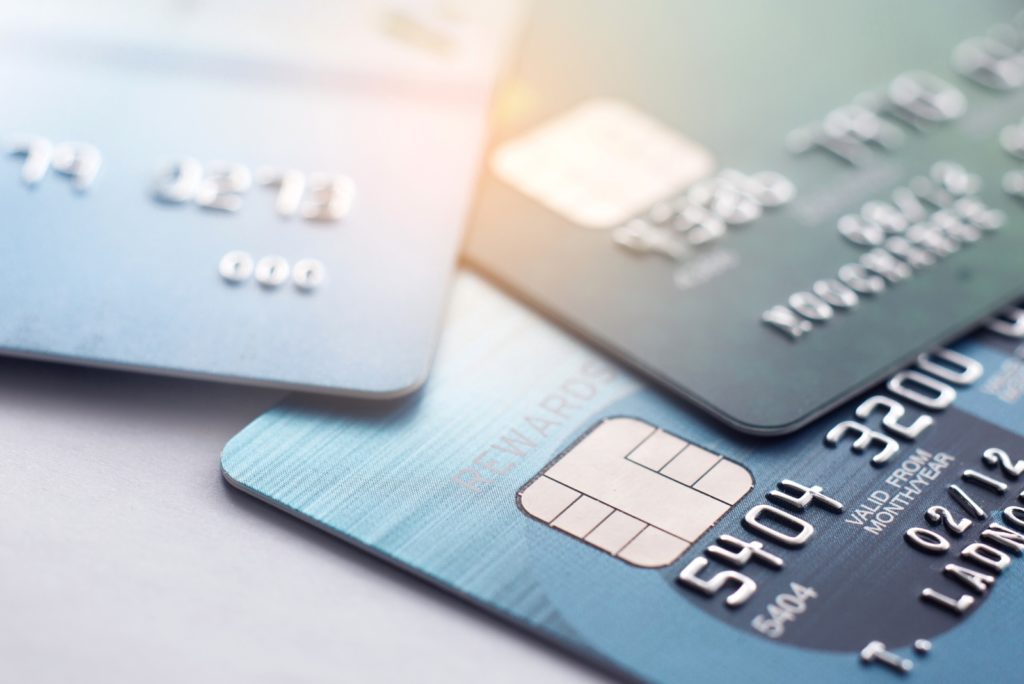Since March 2022, the U.S. Federal Reserve Board has steadily and significantly raised its target federal funds rate.
Whenever this happens, the rest of the financial industry hops on board to raise other types of interest rates. That includes credit card issuers.
At the end of 2023, the average APR on credit cards stood at a record 22.8%, according to the Consumer Financial Protection Bureau. Just 10 years earlier, the rate was a mere 12.9%.
https://www.consumerfinance.gov/about-us/blog/credit-card-interest-rate-margins-at-all-time-high
If you are carrying credit card debt, those higher rates are very bad news.
For each month you do not pay off the credit card in full, a substantial finance charge will be added to the balance. The higher the interest rate, the greater the finance charge. If your lender has raised the interest on your credit card, you should pay off as much of your debt as you can.
If possible, pay off the balance immediately so you won’t fall further into debt. If you can’t pay the entire balance, pay as much as you can and gradually try to eliminate your debt.
Fortunately, there are actions you can take to avoid dire consequences of ending up with debt that’s increasing at an alarming rate.
4 Tips to Help Lower the Interest on Your Credit Cards
Although there is nothing you can do to roll back the Federal Reserve’s actions, you don’t have to sit back and take the rising costs associated with your credit cards. Believe it or not, you have the power to lower your card’s interest rates.
Here are the four ways to lower the interest rates on your credit card accounts:
Raise Your Credit Score
Raising your credit score is the best way to get a lower credit card interest rate on your own. A good credit score indicates that you are a responsible borrower and less likely to default on your debt.
Lenders and creditors impose high interest rates on people with low credit scores. This protects the lender from borrowers who are more likely to run off and leave their debts unpaid.
If you can prove you are a low risk by improving your score, you might be able to negotiate a lower rate with your current credit card company. Or, your improved credit score might get you a better rate with another company.
Open an New Account and Make a Balance Transfer
Credit cards have notoriously high interest rates. A tried-and-true strategy to get a lower rate is to transfer your existing balance to a new credit card from another lender offering a lower interest rate.
However, be careful when executing this strategy. Only open one account, since too many applications for new credit cards will drag down your credit score. In addition, you should always read the fine print before making the move.
In most cases, very low interest rates on a credit card are part of an introductory offer. Introductory is a fancy way of saying “temporary,” of course. That means that the rate usually shoots higher after a few months.
If you don’t think you can pay off most or all of your debt before the introductory period expires, you might want to choose a different option for lowering your rate.
Enroll in a Debt Relief Program
Debt relief provides another option to lower the interest on your credit card. Debt management falls under debt relief and involves the help of a professional credit counselor. This individual will help you come up with a payment plan that works with your budget.
The result is usually a lower monthly payment, since the counselor may seek concessions from each credit card lender. Such concessions might include lower interest rates and smaller monthly payments.
While credit counselors cannot guarantee success, they will certainly try their best to get those concessions.
Negotiate with the Creditor Yourself
The last possibility to reduce your credit card interest rate is to negotiate directly with your creditor. Some people may find taking a DIY approach to be intimidating, but many consumers have lowered their interest rates by pursuing this route.
If you are ready to try the DIY approach, simply tell your creditor that you are in a tough financial situation and request a lower rate that will prevent you from defaulting.
If you are ill and are going through expensive medical treatments, there is a good chance that you will be granted a reduced interest rate, even if it is just for a brief period. You can also request a better rate if you are a good credit risk, meaning you meet your obligations on time.
Use one or more of the above methods to try to lower your rates further. Getting a lower rate all depends on your credit history and specific financial situation.
Important Facts About the Interest Rate of Credit Cards
As you try to lower your credit card costs, here are some important facts you should know:
- If you pay the full balance each month, interest and finance charges will never become an issue.
- If you receive a low interest rate on a new credit card, treat this as a temporary situation. The creditor usually raises the rate after six to 12 months. Even the 0% interest that is common in balance transfers won’t last for very long. So, pay down old debt fast and don’t add new debt.
- Even if you are a responsible credit card holder who pays on time, the creditor can increase the interest rate on your credit card. However, the law says the lender must inform you at least 45 days before the hike is implemented.
- You have the right to refuse a credit card rate increase. While the lender might negotiate with you to find a rate that you will agree to pay, it’s also possible that the lender will close your account.
Nobody likes to see their credit card interest rate increase. But knowing the facts can help you to take steps that might mitigate the impact of rate hikes.









